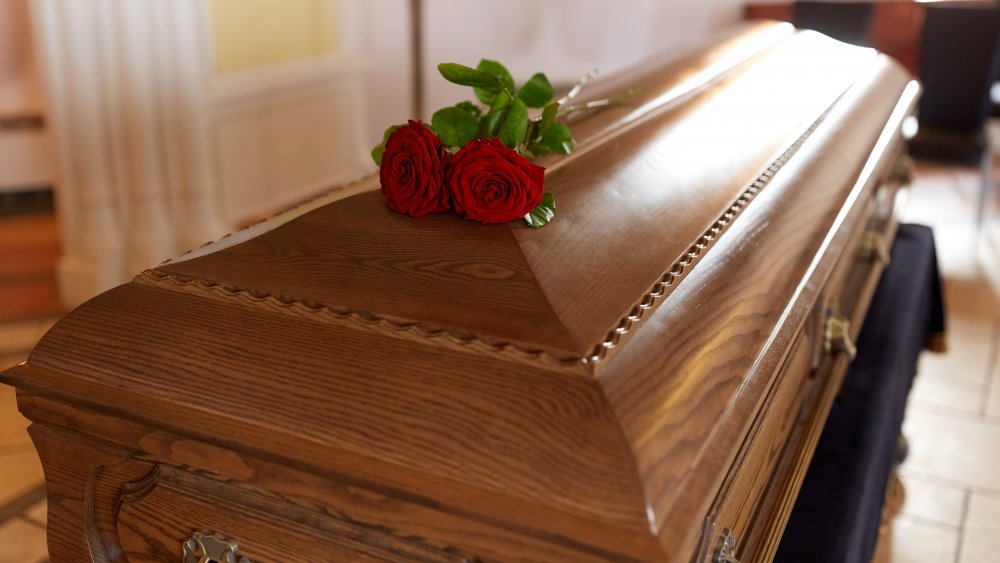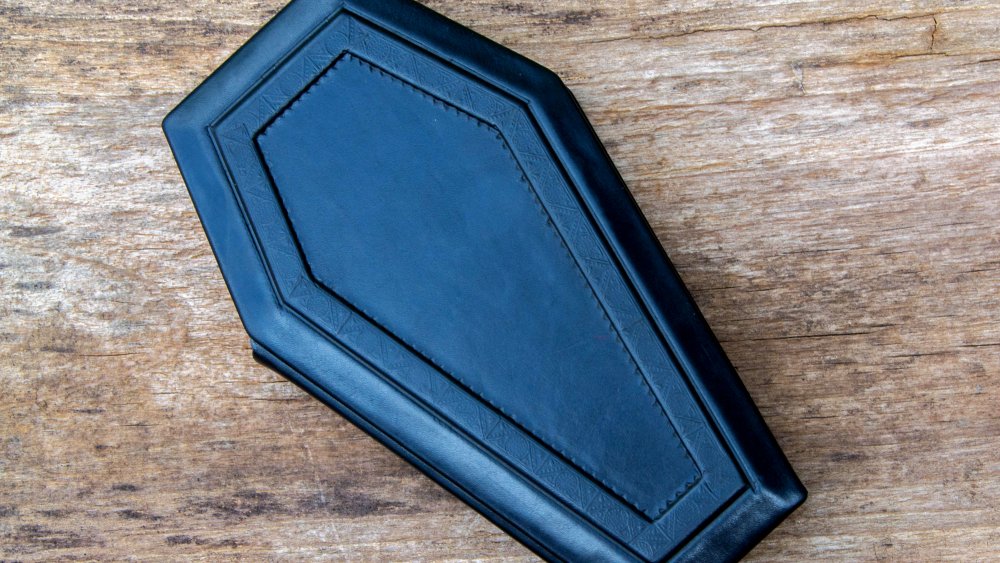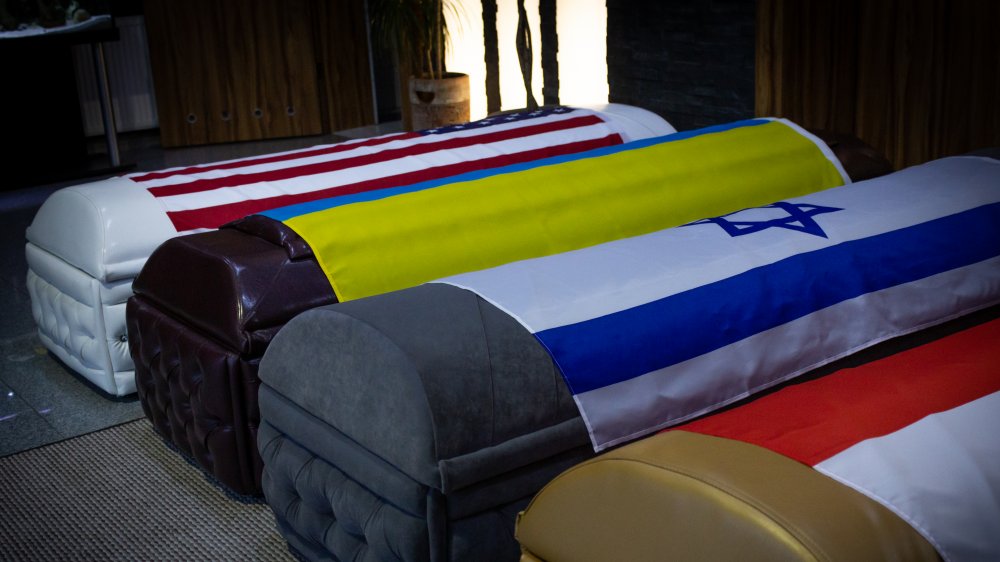The Untold Truth Of Coffin Clubs
"Makers of Fine, Affordable Underground Furniture" proclaims the website for the New Zealand Coffin Clubs. That tagline captures both the essential tone as well as the primary activity of these societies: the construction of one's own coffin to enable a more personalized post mortem.
Though the clubs have started appearing internationally, the first appears to be the work of New Zealander Katie Williams, a retired palliative care worker. "Because of my work and my age I had become a perpetual mourner," she explained to The Guardian in 2016. Moreover, the mourning never seemed to reflect the vibrancy of the life lived by the person who had brought them all together. In a longer profile written by National Geographic the following year, Williams, told how she "gathered some old blokes who were ex-carpenters and builders, and a group of women that would get creative, and we started it up in my garage and carport." From there a small community of 50 to 60 people would show up on Wednesdays to construct and decorate coffins, and then developed a further community by enjoying tea and meals together.
The coffins themselves are not simple, roughshod DIY contraptions, but reflections of the persons who would one day occupy them. "Mine is purple!" Williams exclaims. "I like lots and lots of glitter — I'm a very glittery person, and I want my coffin to show that."
Financing one's funeral
An added benefit touched upon by both National Geographic's piece as well as The Guardian's is that joining a Coffin Club lowers the cost of your own death, financially speaking. In 2016, The Guardian reported that funeral costs had more than doubled since 2004, to a price of £3,897, or around $5,000. One in seven people reported having financial difficulty paying for the funeral; "Of those, 10 percent had to sell belongings to cover the cost, 24 percent had to put the balance on a credit card, 10 percent had to take out a loan, and 18 percent had to borrow money from a friend or relative."
Many might point out that these people could be adding extravagance to the funeral. Putting aside the point of whether we should treat a loved one's death with austerity, if we return to New Zealand, National Geographic presents the savings as the difference between $5,000 New Zealand Dollars ($3,300 USD) to $200 NZD ($130 USD). In fact, the Kiwi Coffin Club, originally created by Katie Williams in Rotorua, advertises, "We Make Coffins that Cost Less." The significant economic savings are propelled by the club's charity status as well as its volunteer force. The group even donates baby coffins to hospitals for free, thus sparing financial hardship for parents who are already going through the trauma of the death of an infant.
Breaking the silence around death
While an interesting phenomenon themselves, Coffin Clubs are an aspect of the growing Death Positivity Movement. In April, The Guardian reported that Death Cafes saw a rise in demand due to the coronavirus. According to an organizational website, a Death Cafe, which coincidentally enough also began just after Coffin Clubs in 2011, is a space where strangers can gather to "increase awareness of death with a view to helping people make the most of their (finite) lives."
Psychology Today lists both Coffin Clubs and Death Cafes as two prime examples of the Death Positivity Movement, primarily led by The Order of The Good Death. Like Coffin Clubs and Death Cafes, the first tenet of this movement is that the silence around death does more harm than good: "by hiding death and dying behind closed doors we do more harm than good to our society."
The result of engaging with these practices is best expressed by Katie Williams's words to National Geographic: "Makes you realize there's no mistake about it, we've all got to die, haven't we? I used to be a bit scared, but now I know when the time comes I will be surrounded by a lot of caring people. I'm not scared of dying now." Such a sentiment might be one of the greatest things we can give to each other.


